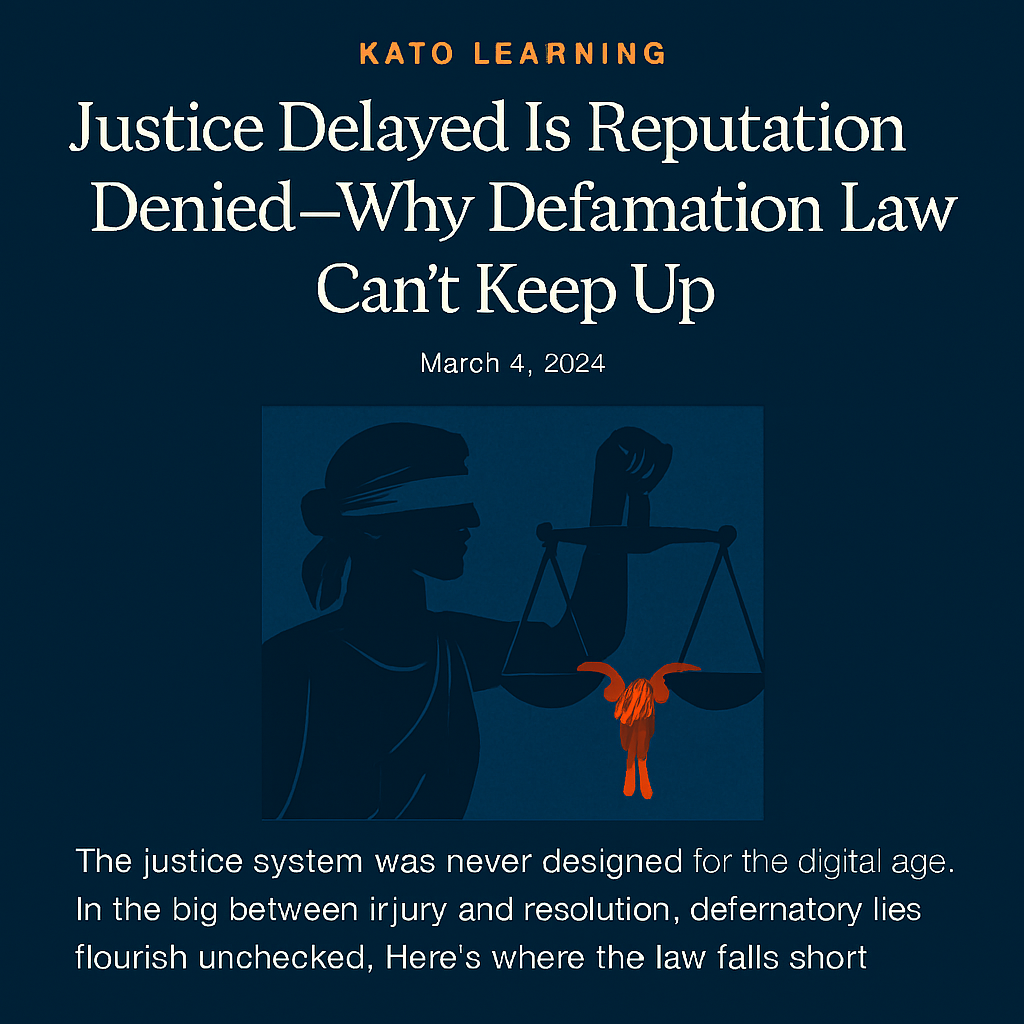⚖️ Justice Delayed Is Reputation Denied: Why Defamation Law Can’t Keep Up
In the digital age, reputational damage happens in seconds. But justice? That can take months, years—or never arrive at all.
This article explores the widening gap between online defamation and legal recourse. While attackers publish instantly, victims are left navigating slow, fragmented systems that weren’t built for the speed or scale of digital harm.

🧠 The Structural Lag
Defamation law was designed for newspapers, not tweets. It assumes:
- A clear jurisdiction
- A traceable publisher
- A slow publishing cycle
- A limited audience
None of these apply online. Today’s defamers are anonymous, global, and algorithmically amplified. The law hasn’t caught up.
📱 Platform Immunity
Most social media platforms are shielded by legal protections:
- In the U.S., Section 230 of the Communications Decency Act
- Globally, safe harbor laws that protect intermediaries
This means platforms aren’t liable for what users post—even if it’s false, harmful, or obsessive. Victims must chase the attacker directly, often without knowing who they are.
🌍 Jurisdictional Chaos
Defaming content can be:
- Posted in one country
- Hosted in another
- Indexed globally
- Viewed everywhere
Legal systems struggle to coordinate across borders. Even when a ruling is issued, enforcement is inconsistent. The result? Victims are left exposed.
🧠 Emotional and Financial Toll
Pursuing legal action requires:
- Time
- Money
- Emotional resilience
- A willingness to relive the harm
Many victims give up—not because the harm isn’t real, but because the system isn’t built to help.
🛡️ Building a Parallel System
Instead of waiting for the law to catch up, some victims build their own defense architecture:
- A Front-End Reporting Tool to log defaming content
- An Incident Manager to track escalation and rebuttal status
- A Directive Engine to formalize defense protocols and psychological profiles
- A Relearn Cycle to absorb and reinforce system logic daily
This isn’t just reputation management—it’s digital adjudication.
🔚 The Takeaway
Legal systems weren’t built for the internet. Until they evolve, victims must build their own. Because in the digital age, justice delayed isn’t just inconvenient—it’s reputationally fatal.
Views: 4